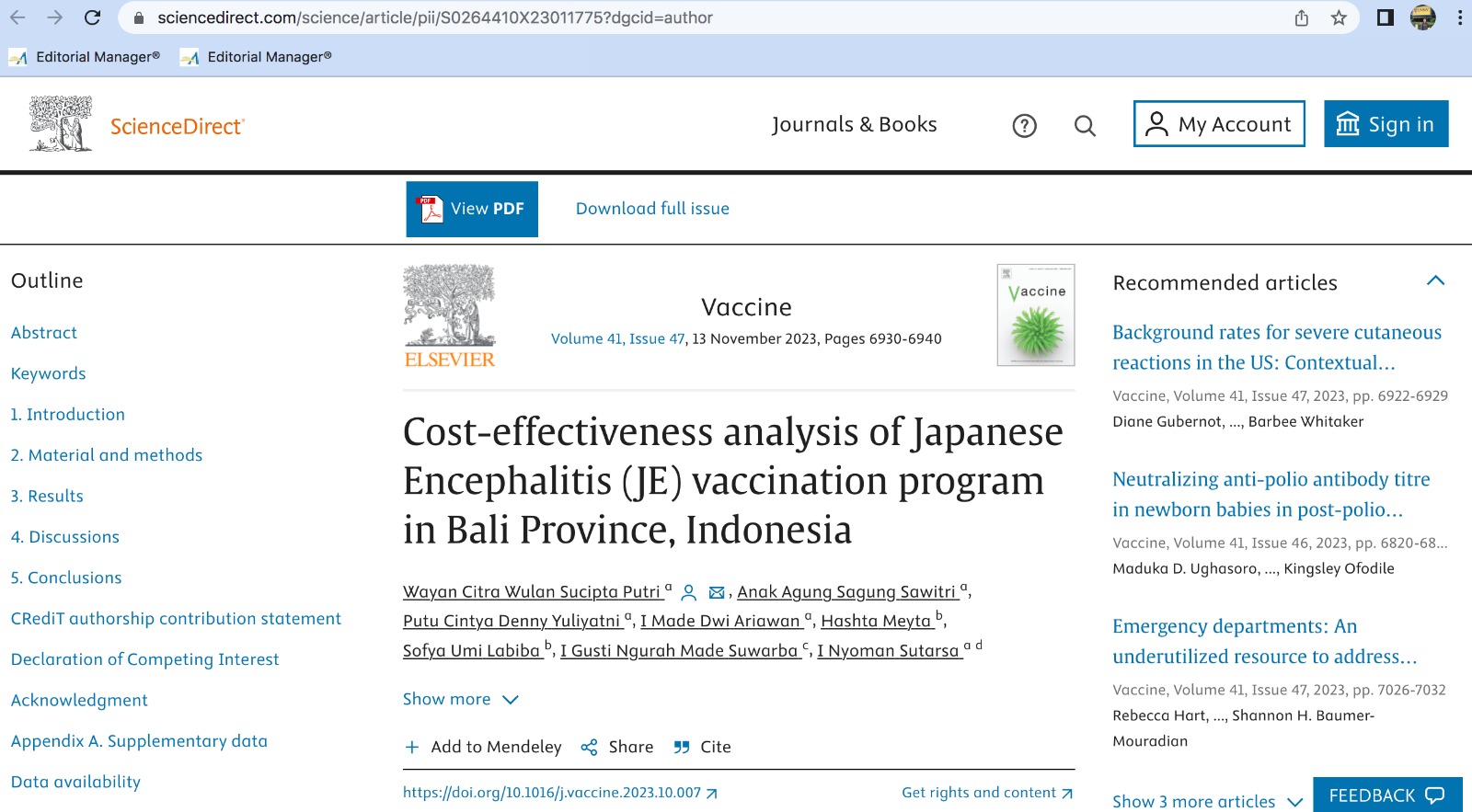The Research Results of the KMKP FK Unud Team Were Successfully Published in the Scopus Q1 Indexed Journal
The Research Team from the Department of Public Health and Preventive Medicine (KMKP, Faculty of Medicine, Udayana University in collaboration with the Indonesian Ministry of Health and GAVI Alliance has conducted an economic analysis of the Japanese Encephalitis (JE) vaccination program in Bali Province, Indonesia, one of the areas with the highest incidence of JE in that country. The Indonesian government started a JE vaccination campaign which was followed by a JE vaccine introduction program in Bali Province in 2018, and the program was fully integrated into the province's routine immunization program in 2019. The results of this research have been published in Vaccine, a reputable indexed journal Scopus Q1 in October 2023 can be seen at the following link https://authors.elsevier.com/a/1hyfr,60n7oBk-
This research is a retrospective cost effectiveness analysis that compares no vaccination with the JE vaccination campaign and introduction program, and the routine JE vaccination program from the perspective of society and the government. Costs and outcomes were estimated for three hypothetical groups of 100,000 children followed from birth to age 10, with impacts measured across the child's lifetime. The routine JE immunization program is the most cost effective strategy by avoiding costs per disability-adjusted life year (DALY) of US$ 212.59 and US$ 94.09 from the government and society's perspective. In contrast, the costs per DALY averted through the vaccination campaign and JE introduction strategy were US$ 1,473.53 and US$ 1,224.20 respectively from the government and society's perspective. Both JE vaccination strategies were proven to be cost-effective although not cost-saving when compared with no immunization program.









